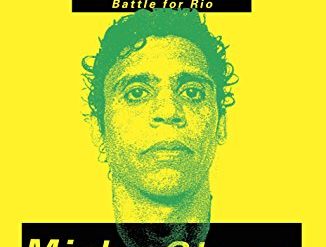
Some call it a hoax. For most of the rest of us, myself assuredly included, it’s the climate emergency or the climate crisis. And no matter what you “believe,” climate change is underway. It’s warming the planet. It’s accelerating. It holds the potential to end the long march of the human race toward civilization. And, yes, it’s the result of the way we human beings have heedlessly overtaxed the resources of our planet for the past two centuries. Understandably, news and commentary about the changing climate is all too common on radio, television, social media, and both newspapers and magazines. But, inevitably, most of this coverage, whether or not it’s accepting of the reality, is superficial. And it’s only in books that we encounter the sort of in-depth accounts and analysis that truly illuminate the challenge we face.
Estimated reading time: 9 minutes
Here I’m listing the six books that have most eloquently brought home to me the nature—and the challenge—of climate change. Three are novels, two works of nonfiction. They’re listed below in alphabetical order by the authors’ last names. Each is followed by the title and link to my full review of the book. And the initial list is followed by two much longer lists, one of nonfiction, the other of novels, that cast additional light on the subject.
This post was updated on July 26, 2023.
Top 5 books about climate change
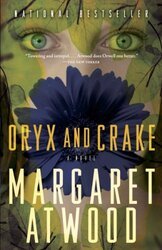
Oryx and Crake (MaddAddam Trilogy #1) by Margaret Atwood (Margaret Atwood’s brilliant dystopian fiction)
Oryx and Crake is the opening salvo in the Maddaddam Trilogy, and a powerful one it is. The tale is set in what appears to be the late 21st Century following catastrophic climate change and . . . something else. Whatever it was that happened was so severe that Atwood’s protagonist, a young man named Jimmy who now styles himself as Snowman, believes he is the only human being left alive on Planet Earth. His only companions are vicious, genetically engineered hybrid animals gone feral—wolvogs, pigoons, rakunks, and such—and a small community of gentle near-humans who live by grazing on grass and trees while Snowman survives by scavenging through the moldering remains of his lost civilization. Read the review.
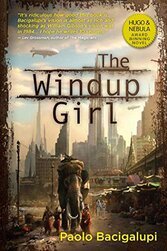
The Windup Girl by Paolo Bacigalupi (A frightening novel about bioengineering gone wild)
The action takes place in Bangkok sometime in the 23rd century. At some point in the past, the oceans rose twenty feet or more, and the city survives only because a visionary Thai king has built an enormous seawall, dikes, and pumps to hold back the waters of the annual monsoon. Genetic engineering has run amok around the globe, and the Thai Kingdom is one of few countries, perhaps the only country, still resisting the “calorie companies,” powerful food-exporting corporations headquartered in the American Midwest and in China. Having killed off virtually all traditional sources of food—and hundreds of millions of people—with genetically engineered plagues to increase their leverage in the market, the calorie companies hungrily eye Thailand and its own independent success in creating new fruits and nightshades capable of resisting the ubiquitous plant-killers. Read the review.
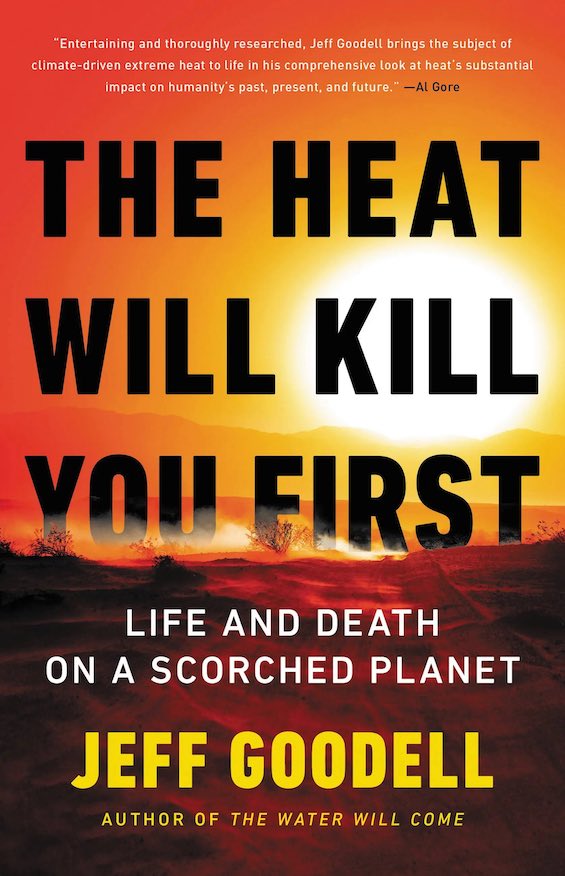
The Heat Will Kill You First: Life and Death on a Scorched Planetby Jeff Goodell (This book might save your life)
You probably don’t need another terrifying book about the climate crisis to convince you that global “warming” is real. Chances are, you’ve known that for years. Or, at the very least, it became clear to you from the recurring floods, killer storms, and deadly heat waves that have struck in recent years. But knowing that, and comprehending the full scope of climate change, and understanding in depth why it’s all happening and what we can do about it . . . well, that’s another thing entirely. And that’s what journalist Jeff Goodell set out to explain in his eye-opening new book, The Heat Will Kill You First. This is the book you need to get a handle on the uncertain future we face—the dangerously hot future our children and grandchildren must learn to survive. Read the review.
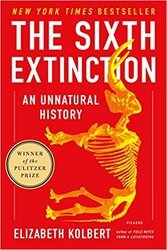
The Sixth Extinction: An Unnatural History by Elizabeth Kolbert (Are we living through the Sixth Extinction?)
Kolbert, a New Yorker staff writer, conducted extensive research for this book, including many thousands of miles of travel to visit scientists in research centers and in the field all across the globe. In The Sixth Extinction, she lets us tag along, shaping each chapter around one of these trips, from Antarctica to the Amazon. The scientists she interviewed for the book include ecologists, biologists, geologists, paleontologists, geneticists, and authoritative figures in many other fields. She reports what she learned in straightforward, easily accessible language, resorting to a bare minimum of jargon. Though deeply disturbing, the book is a pleasure to read. Read the review.
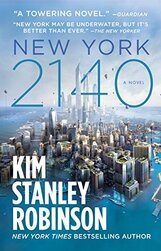
New York 2140 by Kim Stanley Robinson (A grim but hopeful view of New York underwater in 2140)
Robinson’s canvas is New York City. Far uptown in Manhattan, on Brooklyn Heights, and in Hackensack, 300-story “superscrapers” built of graphene composites pierce the clouds. There, the world’s richest people own luxurious apartments they rarely occupy for more than a week or two every year. Everything south of midtown is underwater up to the third or fourth story, yet for many New Yorkers life goes on there above the waterline in the high-rise buildings that have survived the flooding. They travel about on skybridges that connect the towers, on the waters that frame Manhattan island, and on canals that traverse what were once streets and avenues. Smaller numbers of people live in “skyvillages” held aloft by arrays of helium-filled balloons and on floating townships that traverse the open seas. Read the review.
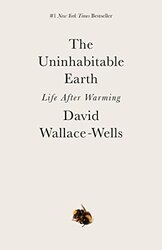
The Uninhabitable Earth: Life After Warming by David Wallace-Wells (Climate change is worse than you think—much, much worse)
They’ve been lying to us. Or, better put, shading the truth. And I’m not referring to the climate deniers in the fossil fuel industry and Congress. We know they’re lying. The problem is, the scientists who have been warning us about climate change aren’t telling the whole truth. In fact, that bad habit is so widespread there’s even a name for it: scientific reticence. The reality is, climate change is worse than you think—much, much worse. And the only place I’ve found the whole story laid out in plain English is in an eloquent new book by David Wallace-Wells, The Uninhabitable Earth. This truly extraordinary book should be must reading for every elected official at any level of government throughout the United States. Read the review.
Nonfiction books about climate change
The Heat Will Kill You First: Life and Death on a Scorched Planetby Jeff Goodell (This book might save your life)
Hot: Living Through the Next Fifty Years on Earth by Mark Hertsgaard (Global warming and climate change: the next fifty years)
The Sixth Extinction: An Unnatural History by Elizabeth Kolbert (Are we living through the Sixth Extinction?)
Under a White Sky: The Nature of the Future by Elizabeth Kolbert (In the Anthropocene, the chickens come home to roost)
Why the West Rules for Now by Ian Morris—What history teaches us about climate change
Scatter, Adapt, and Remember: How Humans Will Survive a Mass Extinction by Annalee Newitz (Will the human race survive climate change and a mass extinction?)
The Uninhabitable Earth: Life After Warming by David Wallace-Wells (Climate change is worse than you think—much, much worse)

Science fiction novels about climate change
Feed by M. T. Anderson (A terrifying vision of the future in an award-winning young adult novel)
TheMaddAddam Trilogy
- Oryx and Crake (MaddAddam Trilogy #1) by Margaret Atwood (Margaret Atwood’s brilliant dystopian fiction)
- The Year of the Flood (MaddAddam Trilogy #2) by Margaret Atwood (Margaret Atwood’s imaginative view of our future (you won’t like it))
- MaddAddam (MaddAddam Trilogy #3) by Margaret Atwood (The Maddaddam Trilogy: Margaret Atwood’s classic dystopian fiction)
The Drowned Cities Cycle
- The Windup Girl by Paolo Bacigalupi (One of the best science fiction novels I’ve ever read)
- Ship Breaker (Drowned Cities #1) by Paolo Bacigalupi (Another exceptionally good sci-fi novel from an emerging master)
- The Drowned Cities (Drowned Cities #2) by Paolo Bacigalupi (Another great sci-fi novel from Paolo Bacigalupi)
- Tool of War (Drowned Cities #3) by Paolo Bacigalupi (Another spellbinding Drowned Cities tale)
The Water Knife by Paolo Bacigalupi (Dystopian fiction that breaks the mold)
Above the Ether by Eric Barnes (Welcome to the apocalypse)
The Parable of the Sower (Parable #1 of 2) by Octavia E. Butler (A superb dystopian novel by Octavia E. Butler)
Flight Behavior by Barbara Kingsolver (Barbara Kingsolver writes eloquently about climate change)
Autonomous by Annalee Newitz (In 2144, Arctic resorts, autonomous robots, and killer drugs)
The First Omega by Megan E. O’Keefe (In this dystopian novella, the heartland has been hollowed out)
The Robin Hood Thief by H. C. H. Ritz (A grim look into the near future that’s all too plausible)
New York 2140 by Kim Stanley Robinson (A grim but hopeful view of New York underwater in 2140)
Scattered Seeds (Changed World #2) by Alice Sabo (Eking out existence in a fast-changing world)
Firewalkers by Adrian Tchaikovsky (A dismal, dystopian future where the climate has run amok)
For related reading
If dystopian fiction is to your taste, check out my latest book that analyzes 62 dystopian novels, Hell on Earth: What we can learn from dystopian fiction. Or see my post, The top 10 dystopian novels.
Check out The Invention of Nature: Alexander von Humboldt’s New World by Andrea Wulf (The man who described climate change—in 1800).
You might also be interested in Science explained in 10 excellent popular books and 20 good nonfiction books about the future.
And you can always find my most popular reviews, and the most recent ones, on the Home Page.



